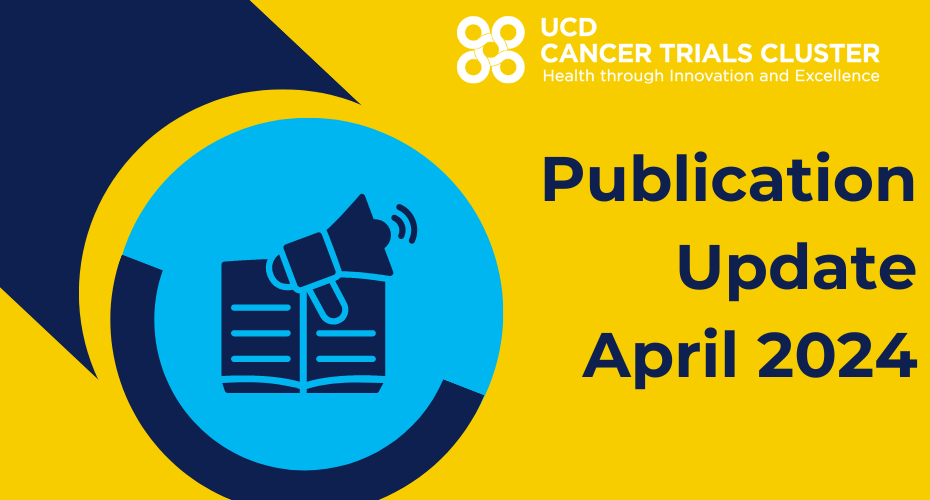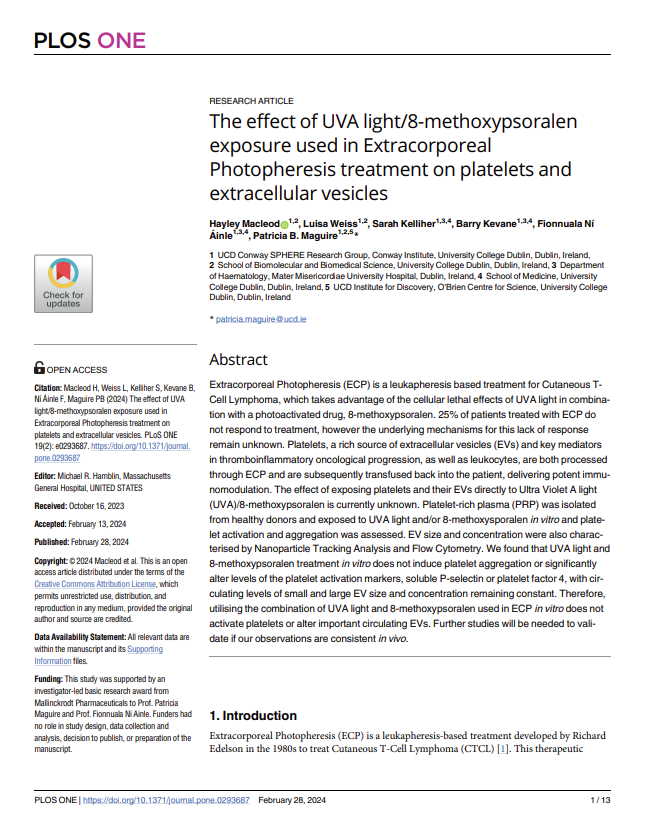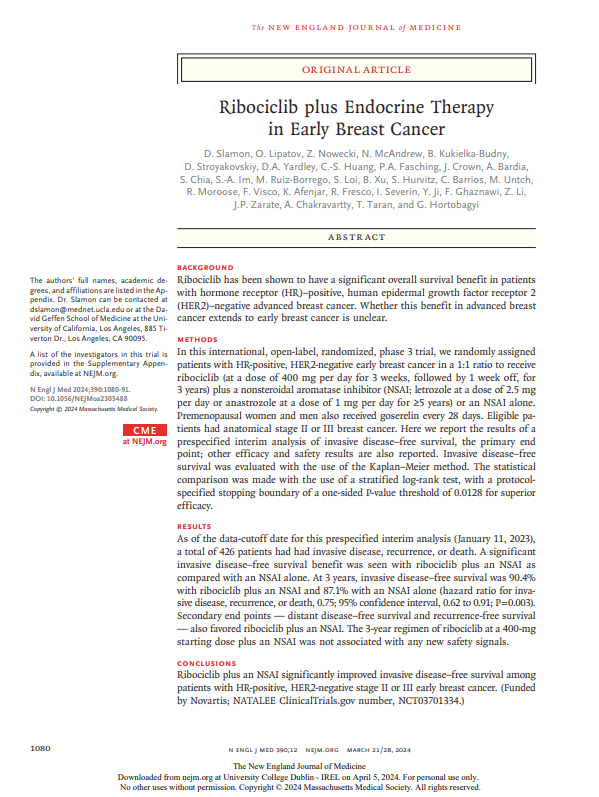Friday, 5 April, 2024
April Publications Update from the UCD Cancer Trials Cluster

The publication of peer-reviewed articles is an important step in the research process. Not only does it communicate new findings in cancer research, it allows research to be subjected to independent expert review.
Our researchers and collaborators have been busy publishing their research. Below we summarise just three of the 20 publications that have been released this year so far.
If you would like to read more of the research produced by the UCD Cancer Trials Cluster's researchers and trial units, you can find our publication list on our 'what we do' page here.

1. Multimodal, Technology-Assisted Intervention for the Management of Menopause after Cancer Improves Cancer-Related Quality of Life—Results from the Menopause after Cancer (Mac) Study
(opens in a new window)Link to article
Cancer and its treatment can induce menopausal symptoms such as hot flushes, night sweats, and poor sleep. Menopausal hormone therapy (MHT) is the most effective treatment for these symptoms but may not be possible for certain cancers.
This study assesses whether a new complex intervention aimed at addressing these symptoms can improve the quality of life in women with a history of cancer. The intervention included:
- non-hormonal medications to address daytime hot flushes and/or night sweats,
- digital cognitive behavioral therapy for insomnia,
- the provision of self-management strategies, and
- the identification of a partner or other support person.
Our colleagues observed a significant improvement in cancer-specific quality of life, insomnia symptoms, and the frequency and impact of hot flashes in participants.

2. The effect of UVA light/8-methoxypsoralen exposure used in Extracorporeal Photopheresis treatment on platelets and extracellular vesicles
(opens in a new window)Link to article
Extracorporeal Photopheresis (ECP) is a treatment for a type of skin cancer called Cutaneous T-Cell Lymphoma. It uses UVA light and a drug called 8-methoxypsoralen to kill cancer cells.
However, 1 in 4 patients don't respond to this treatment, and we don't know why. During ECP, blood components like platelets and white blood cells are treated and then put back into the patient, which helps boost the immune system.
Our colleagues wanted to see if exposing platelets to UVA light and 8-methoxypsoralen directly would change how they work.
Using platelets from healthy participants in laboratory experiments, they found that this treatment did not enhance platelet activity or alter specific markers. Additionally, it did not impact the size or quantity of extracellular vesicles, which play crucial roles in cellular communication.
These findings suggest that the ECP process in the laboratory does not directly influence platelets or extracellular vesicles. However, further research is necessary to determine if these results translate to the in vivo environment.

3. Ribociclib plus Endocrine Therapy in Early Breast Cancer (early results of the NATALEE Trial)
(opens in a new window)Link to article
Ribociclib has been shown to have a significant overall survival benefit in patients with advanced breast cancer. Whether this benefit extends to early breast cancer is unclear.
In a phase 3 trial, patients with early HR-positive, HER2-negative early-stage breast cancer received either ribociclib plus a nonsteroidal aromatase inhibitor (NSAI) or an NSAI alone. The study aimed to assess disease–free survival.
At 3 years, invasive disease–free survival was 90.4% for those recieving ribociclib plus an NSAI compared to 87.1% receiving NSAI alone.
The safety profile remained favorable, with no new concerns identified. The study concludes that ribociclib in conjunction with an NSAI significantly enhances invasive disease–free survival in patients with early HR-positive, HER2-negative breast cancer.